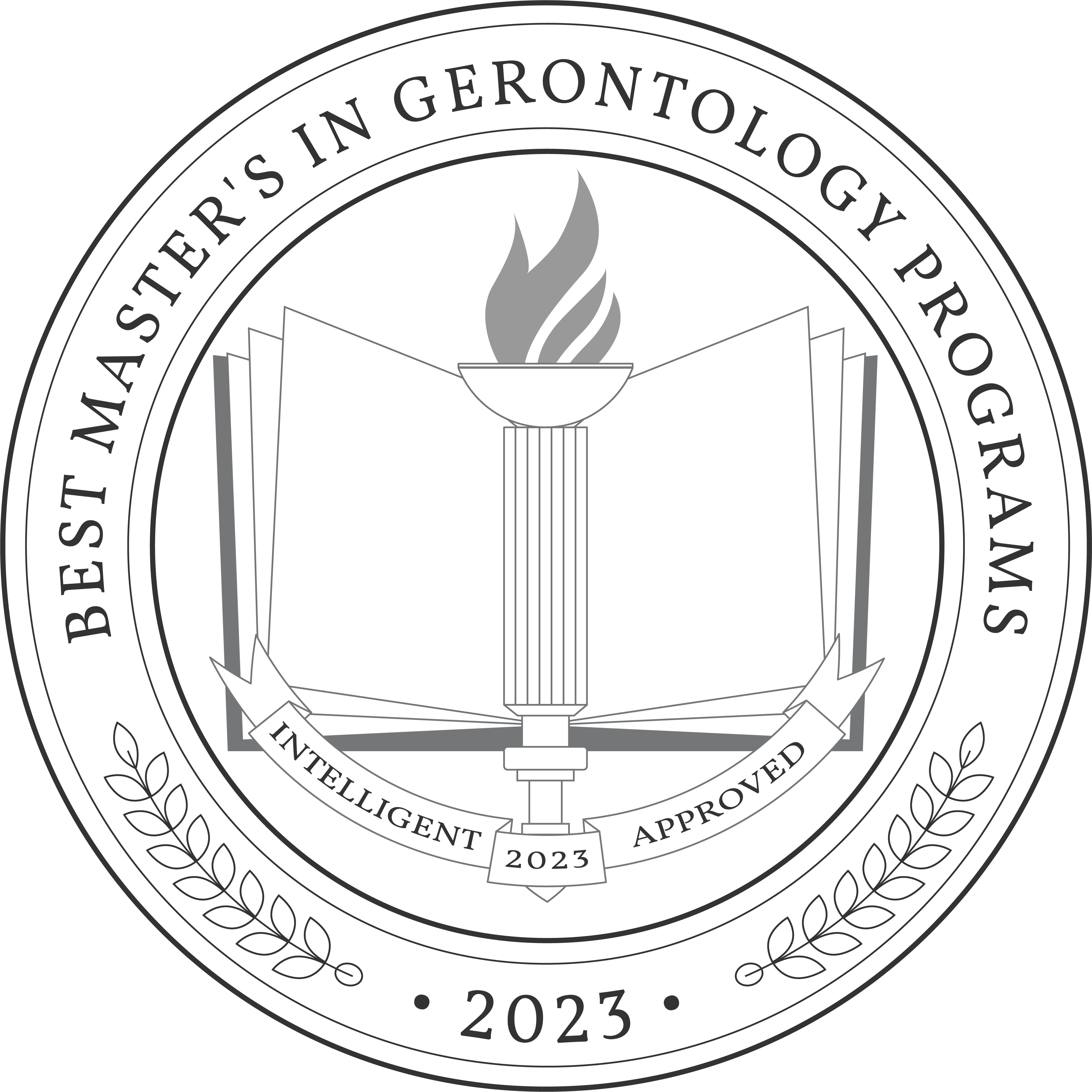Why This Matters
-
DEMAND FOR OCCUPATIONAL THERAPISTS TO GROW FASTER THAN NATIONAL AVERAGE
The demand for licensed occupational therapists to assist an active elderly population is expected to grow by 16%, much faster than the average job growth rate for all other occupations of 4%.
-
DEMAND FOR REHABILITATION COUNSELORS TO GROW BY 10%
As the general population lives longer, specialists are needed to help the elderly adapt to new limitations and deal with disabilities and injuries related to aging.
-
OCCUPATIONAL THERAPISTS EARN $84,950 PER YEAR
The median annual wage for occupational therapists is more than two times the median wage for all other U.S. occupations.
Our Research
This list covers graduate programs in gerontology. Graduates are prepared to assist and educate health professionals and the general public on matters related to aging and longevity. Degrees offered include Master of Science in Gerontology, Master of Arts in Social Gerontology, Master of Science in Applied Gerontology, Master of Science in Interdisciplinary Gerontology, Master of Gerontological Studies, and Master of Science in Nursing in Adult Gerontology. Students can choose from online, in-person, and hybrid learning formats.
Programs that prepare graduates for the global healthcare workforce receive accreditation at the national and regional levels. Regional accreditation is given by organizations such as the Western Association of Schools and Colleges (WASC), Southern Association of Colleges and Schools Commission on Colleges (SACSCOC), and the Middle States Commission on Higher Education (MSCHE).
We evaluated each program on the basis of flexibility, faculty, course strength, cost, and reputation. Then we calculated the Intelligent Score for each program on a scale from 0 to 100. For a more extensive explanation, check out Our Ranking Methodology.
- 65 hours to write this article
- 190 universities and colleges we assessed
- 334 education programs we compared
The Top 42 Master’s in Gerontology Degree Programs

Discover More Options
What You Should Know About This Degree
When choosing a career working with the elderly, you should also consider pursuing a master’s degree in social work. Gerontology programs prepare graduates for managerial and administrative roles in elderly services. On the other hand, social work programs prepare students to offer social services to a wide range of age groups. If you want to specialize in skills that can assist with aging, you should choose a Master’s in Gerontology degree. If you would like a broader education in social assistance, a Master’s in Social Work may be right for you.
Certifications can help aspiring professionals gain a competitive edge and demonstrate expertise in a particular area to potential employers. Graduates who wish to pursue careers as geriatric nurses should consider obtaining the Gerontological Nursing Certification from the American Nurses Credentialing Center (ANCC). Joining professional organizations such as the Gerontological Society of America, the National Association for Professional Gerontologists, and the American Society on Aging can also advance your career.
Graduates can expect a positive outlook as the public continues to live longer and remain active later in life. Many occupations such as occupational therapists, rehabilitation counselors, and geriatric nurses expect to see job growth at a rate much higher than the national average.
What’s Next?
Ask yourself these questions when researching master’s programs in gerontology:
- Am I eligible for this program? Students who wish to pursue a graduate degree in gerontology must hold a bachelor’s degree or equivalent. Some programs require students to hold a degree in a relevant field and to have previous experience working with aging populations.
- How long does it take to complete this online degree? Most Master’s in Gerontology programs take one to two years of full-time study to complete. The programs on this list require a minimum of 30 credits and a maximum of 65 credits to complete.
Application deadlines and entry requirements are different for each program. Visit the school’s website or contact the school’s admissions department for more information.
Consider how you will cover the cost of your graduate studies. You may be eligible for federal student aid as well as grants or scholarships. Some employers may pay for part or all of your tuition fees. Make sure to turn in all applications for funding on time.